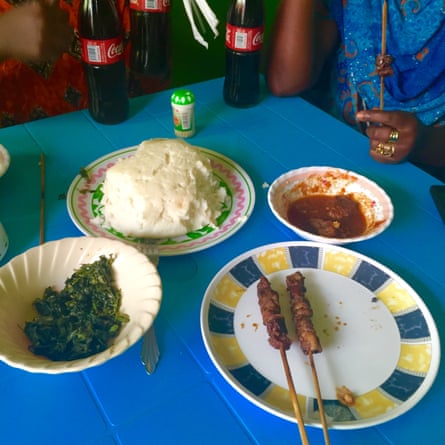As a journalist, it is Aline’s job to report on her country and president, but she doesn’t know how to without getting killed.
Pierre Nkurunziza is Burundi’s fearsome, undemocratic president who stands accused of inciting ethnic tensions while dismissing any negative stories on him as lies.
Intimidation of the press is a professional operation, according to Aline, who says a member of the president’s communications team regularly sends her WhatsApp messages telling her to stop writing and reporting. “I know him - he used to be my friend,” she adds.Since Nkurunziza announced that he would run for a third term in April 2015, Burundi has been plunged into chaos, with many warning of a return to civil war. The president, his party and the police have been accused by orchestrating a campaign of violence and intimidation, where targeted assassinations, torture and sexual violence are daily occurrences.
Underpinning this has been a war on independent media. Following a failed coup attempt in May 2015, Nkurunziza declared journalists were “fighting the government” and marked them as an enemy of the people. Journalists were detained and killed, newspaper offices and radio stations were set on fire and radio signals were cut.
The Burundian government and its supporters deny wrongdoing. They say people are leaving the country because of hunger, not because of ethnic targeting or violence. They also say reports of sexual violence and human rights abuses were made up by Human Rights Watch, the UNHCR, and the European Union, and protested their findings in the capital in February 2017, citing the coverage as “fake news”.
“They keep lying and saying it’s fake and none of these things are happening,” Aline said from neighbouring Rwanda where she has sought refuge. “This is why I have to keep reporting, to tell the truth.”
Aline now runs a cafe in Kigali’s Muslim district with two former colleagues, Chanise and Jeanette. By day they serve ugali, beef and vegetable dishes, and by night they revert to their old lives.

The trio, who are all in their mid-20s, are part of a secret network called Humura Burundi that works under the radar of Nkurunziza’s control.
Their reports cover everything from the harassment of women by the security forces, to ”disappearances” – such as the ongoing case to find missing journalist Jean Bigirimana.
As one of the only lifelines for accurate, truthful reporting, they are widely read by exiled Burundians in refugee camps and those still living in Burundi who oppose Nkurunziza.
Through the network, exiled journalists, and those operating in the country, monitor what is happening in Burundi, and use Facebook, Twitter, SoundCloud and WhatsApp to share their reports. The journalists all file under anonymous bylines to protect their identities and their families.
“We do our stories in secret,” said Jeanette. “This is the only way we can report on what’s happening in our country without ending up dead.”
The war on “fake news” and unsubstantiated rumours has become a focal point for politicians and media outlets around the world. But in Burundi, it is not a newdevelopment, but something that has been ingrained in their country’s history for decades.
In the aftermath of 12-year civil war, countering the “hate media” that fuelled much of the violence was crucial. In the late 1990s, several radio stations were established to help reconcile the country’s wounds. They hired both Hutu and Tutsi journalists and the output focused on reconciliation and countering dangerous rumours.
As a result Burundi built one of the most vibrant, independent broadcasting media sectors in Africa. Before they fled, the cafe trio worked at Radio Publique Africaine (RPA), where they covered corruption, financial scandals and human rights abuses, and sexual violence against women.
“Our station said things [the government] didn’t like,” Chanine said passing food around the table. “For us, it was our second home.” When their radio station was set on fire during political violence in May 2015, journalists watched as decades of balanced and trusted post-conflict reporting was dismantled in weeks.
The floodgates have since opened, and with them, the poisonous ethnic propaganda they were seeing before – pitting Hutus against Tutsis. Now they have to contend with their reporting branded as “fake” by the government, too.
Though some independent journalists remain in the country, they are under constant surveillance and under the lingering threat of arbitrary detention. Others, left with no income, have even ended up in refugee camps in neighbouring countries.
“When you see a soldier or a policeman, your heart beats faster, and you say to yourself, ‘now is when I’m going to die’. If someone finds you and beats you, and you survive the beating, you say thank you,” said Aline, reflecting the reality for journalists in Burundi.
“When they take people, you know you’ll never see them again.”
*Names have been changed for the protection of the journalists and their remaining family still living in Burundi.
Reporting for this article was supported by The European Journalism Centre and done in partnership with The Fuller Project for International Reporting.
